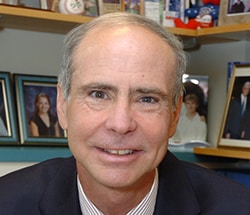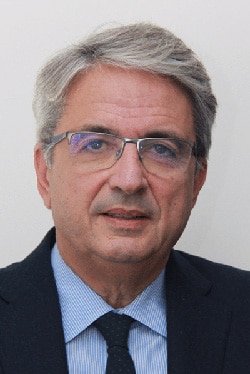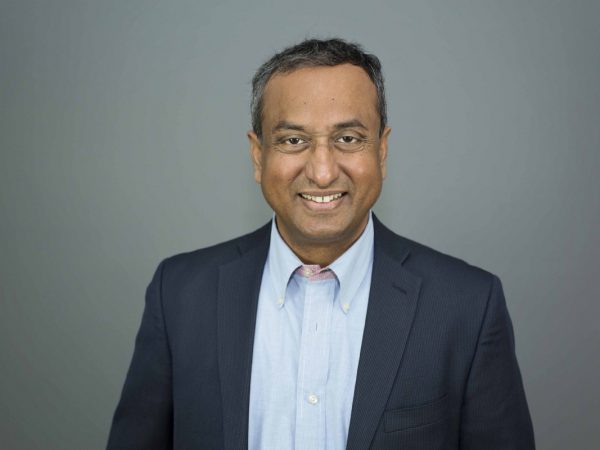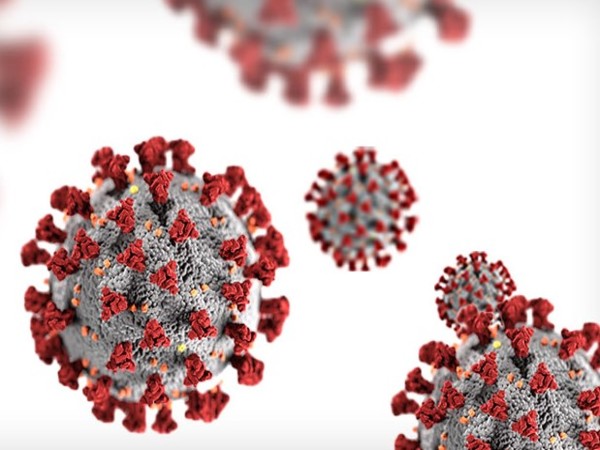AACR Journal Spearheads Trendsetting Blood Cancer Conference
Editor’s Note: Check out the full program of the inaugural Blood Cancer Discovery symposium here, and register for this exciting conference on myAACR. Advance registration is open through February 9.
The American Association for Cancer Research (AACR) publishes 10 scientific journals and hosts more than 20 meetings, workshops, and special conferences each year.
Both initiatives share a similar goal: to rapidly communicate impactful advances to the research community. In order to amplify their efforts, the AACR Meetings and Publications divisions have collaborated to host the inaugural Blood Cancer Discovery Symposium, to be held March 4-6, 2024, in Boston.
Kenneth C. Anderson, MD, FAACR, and Riccardo Dalla-Favera, MD, FAACR, editors-in-chief of the AACR journal Blood Cancer Discovery, are leading the charge.
“Blood Cancer Discovery has been extraordinarily successful in its mission to communicate cutting-edge progress in the field of blood cancer research, and our idea is that a symposium will fast-forward that progress,” said Anderson, the Kraft Family Professor of Medicine at Harvard Medical School and director of the LeBow Institute for Myeloma Therapeutics and Jerome Lipper Multiple Myeloma Center at Dana-Farber Cancer Institute.
Dalla-Favera, the Percy and Joanne Uris Professor of Clinical Medicine and a professor of pathology and cell biology, genetics and development, and microbiology and immunology in the Institute for Cancer Genetics and the Herbert Irving Comprehensive Cancer Center at Columbia University, emphasized that the symposium is designed to bring together experts from all areas of blood cancer research—including myeloid malignancies, lymphoid malignancies, and plasma cell diseases—a breadth of coverage that is relatively rare for blood cancer conferences.
This goal of the conference design is reflected in the lineup of distinguished speakers delivering keynote and plenary lectures, including:
- John E. Dick, PhD, FAACR, a senior scientist at the Princess Margaret Cancer Centre in Toronto;
- Margaret A. Shipp, MD, FAACR, the Douglas S. Miller Chair and chief of the Division of Hematologic Neoplasia at Dana-Farber Cancer Institute, a professor of medicine at Harvard Medical School;
- Louis M. Staudt, MD, PhD, FAACR, chief of the Lymphoid Malignancies Branch of the Center for Cancer Research at the National Cancer Institute;
- Benjamin L. Ebert, MD, PhD, FAACR the George P. Canellos, MD, and Jean S. Canellos Professor of Medicine at Harvard Medical School, chair of medical oncology at Dana-Farber Cancer Institute, a member of the Broad Institute of MIT and Harvard; and
- Nicole Gormley, MD, the acting division director for the Division of Hematologic Malignancies II at the U.S. Food and Drug Administration.
“In lieu of a single-disease focus, we wanted to highlight the commonalities and differences both in findings and experimental approaches between diseases,” Dalla-Favera said. “A lot of ideas can be exchanged by having this type of format.”
We spoke with Dalla-Favera and Anderson about the purpose, highlights, and unique nature of the upcoming symposium and learned what researchers can expect from attending.
How did the idea for this symposium come about?

Anderson: Blood Cancer Discovery has been so successful in the short term because of the rapid progress made in the basic science of hematologic malignancies. There has been a very rapid translation of these advances to the clinic, leading to the improved diagnosis of blood cancers and novel treatments that have improved patient outcomes.
So Riccardo and I—together with the leaders of Blood Cancer Discovery at the AACR—thought that the advances that are already happening in Blood Cancer Discovery could be the uniting force for a meeting that crosses the boundaries of different hematologic malignancies. We hoped it could provide a platform for investigators to present their unpublished data, stimulate new collaborations, and bring the next generation of researchers together to foster more progress in the future.
Dalla-Favera: We thought this meeting should convey the overall philosophy of Blood Cancer Discovery and the high standards that we are pursuing at the journal. The format of the meeting reflects the theme of science informing the clinic, and the clinic informing basic science. The program includes topics such as genetics, precision medicine, the microenvironment, and immune aspects across all types of hematologic malignancies.
What aspects of the program and its organization make this symposium unique?

Dalla-Favera: Typically, most meetings tend to focus on a particular type of blood cancer. This symposium, however, is intended to allow a cross-fertilization of ideas rather than being a specific disease-focused meeting. The goal is to provide an overview of the whole picture of hematologic malignancies, which often have common target cells, and common as well as distinct pathogenetic mechanisms.
Anderson: What we’ve tried to do intentionally is to have each topic addressed by speakers who represent myeloid malignancies, lymphoid malignancies, and plasma cell diseases with the view that there may be some common mechanisms and threads, and that we can encourage collaboration between the different fields. Nowadays, it’s easy to get super specialized. It’s hard enough to keep up with the advances in one of these areas, but this meeting will really fast-forward interactions among different subject areas, and I think it’s highly likely to stimulate good discussions.
What are you most looking forward to about the symposium?
Dalla-Favera: I would like to stress the stellar quality of the speakers, many of whom are Blood Cancer Discovery editors and leaders in the field. I look forward to hearing their new data.
Anderson: We have invited world-renowned leaders in these topics who are willing to come speak and interact. But in addition to having the world’s experts, we have tremendous interest from the new generation and the up-and-coming investigators. Hearing about the state of the art in the field is critical, but equally, and maybe, even more important is priming the next generation of researchers to fast-forward the progress. I’m excited about those two aspects.



